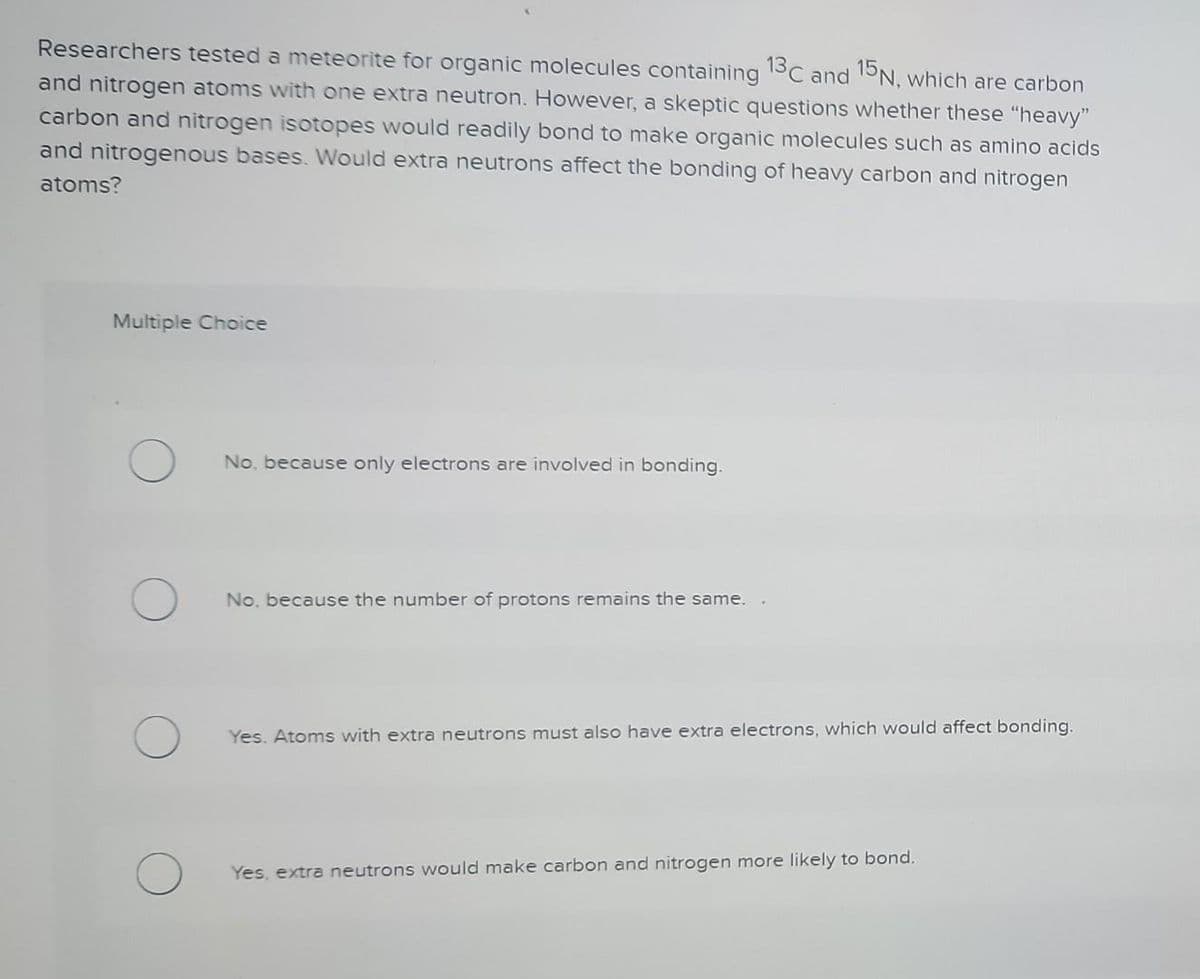Researchers tested a meteorite for organic molecules containing 13C and 15N, which are carbon and nitrogen atoms with one extra neutron. However, a skeptic questions whether these "heavy" carbon and nitrogen isotopes would readily bond to make organic molecules such as amino acids and nitrogenous bases. Would extra neutrons affect the bonding of heavy carbon and nitrogen atoms? Multiple Choice O No, because only electrons are involved in bonding. No, because the number of protons remains the same. . Yes. Atoms with extra neutrons must also have extra electrons, which would affect bonding. Yes, extra neutrons would make carbon and nitrogen more likely to bond.
Types of Chemical Bonds
The attractive force which has the ability of holding various constituent elements like atoms, ions, molecules, etc. together in different chemical species is termed as a chemical bond. Chemical compounds are dependent on the strength of chemical bonds between its constituents. Stronger the chemical bond, more will be the stability in the chemical compounds. Hence, it can be said that bonding defines the stability of chemical compounds.
Polarizability In Organic Chemistry
Polarizability refers to the ability of an atom/molecule to distort the electron cloud of neighboring species towards itself and the process of distortion of electron cloud is known as polarization.
Coordinate Covalent Bonds
A coordinate covalent bond is also known as a dative bond, which is a type of covalent bond. It is formed between two atoms, where the two electrons required to form the bond come from the same atom resulting in a semi-polar bond. The study of coordinate covalent bond or dative bond is important to know about the special type of bonding that leads to different properties. Since covalent compounds are non-polar whereas coordinate bonds results always in polar compounds due to charge separation.

Trending now
This is a popular solution!
Step by step
Solved in 2 steps with 2 images









